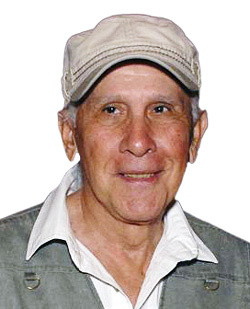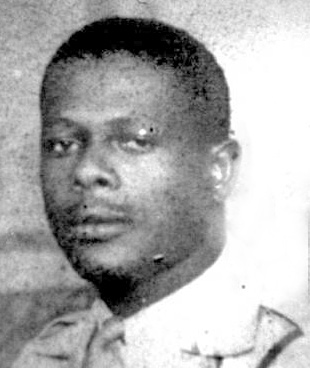July 18, 2018 issue
Authors' & Writers' Corner

Individual differences make a world of difference. Conflicts in life seem to go hand in hand with differences. Some of the differences which stand out include folks who consider themselves liberals while others are conservatives. Some people like town or city life while others, including myself, prefer a life in the country. Some people are dogmatically progressive while others are rigidly regressive, and would like to bring back “the good old days”.
It seems that people are born to be different. It doesn’t necessarily mean that one group is right and the other is wrong, but that’s where the problem starts. Most of the differences can probably be attributed to genetics and DNA. The rest are considered environmental and cultural differences. On top of all that we have differences in language which does not help matters. Religious and racial differences can also stir the pot.

All along the way there are contradictions. While some individuals are all for family and family ties, there are those amongst them who strongly support the demagogue American President Trump who is destroying families and family ties. Some people, including some members of the radicalized “religious” right are for freedom yet deny basic human rights supporting dictatorship, racism and inhumane practices.
Some folks enjoy their own company best (introverts) while others are outgoing and need the companionship of many friends and acquaintances. Some folks are homebodies and like to stay at home while others like myself love to travel and visit new places. Then you have the different types – the do-gooders, the adventurers, the bad-doers, the stingy, the generous, the selfish, the charitable, the concerned and the indifferent.
If you take the time to look around in your own life and world, among friends, family and strangers, you will probably see a mixed bag. If you can look into yourself, you can find a mixture too in many circumstances. As they say, circumstances alter cases. Try to walk in another person’s shoes. We all have “cracks”. We are all “tainted” goods.
Our belief system, wired in the brain, is the traffic director which points in the direction we travel along life’s highway, be it the good, the bad or the ugly. Some of us may pause to reconsider where we are going or where we have come from, some may even have a change of heart or “conversion” and change direction – hopefully for the better. The only problem is time, for time is not on our side.
Some folks on their death bed realize that perhaps they got it all wrong. They should have lived differently, seen things differently, but by then it is just about too late. Perhaps there is redemption, a miracle, and time to put things right but by and large, we die as we have lived.
It is true that the aging process slows us down in many respects, including criminality. Despots and dictators – a few come to mind, get worse over time. Let us share and enjoy our differences. We must try to do the best and be the best for who we are, whatever our gifts, talents, dispositions or situations in life. It is the human condition, as cracked as it is. Ironically the cracks let in both the light and the water. If the creeks don’t rise and the sun still shines I’ll be talking to you.

By Romeo Kaseram
Eric Merton Roach was born on November 3, 1915, in the village of Mount Pleasant, Tobago. Bridget Brereton’s An Introduction to the History of Trinidad and Tobago reproduces an adaptation of autobiographic details from Roach’s Growing up in Tobago (Michael Anthony & Andrew Carr, eds., David Frost Introduces Trinidad and Tobago), which gives us an insight into the poet’s early life:
“My village, Mount Pleasant, was a sprawling bushy compound of crude wattle or clapboard cabins with thatched or tin roofs, shabby like ourselves. In later years it seemed to me that in my boyhood we were clinging to life by the skin of our teeth and did not realise our hardship because we knew nothing else. We grubbed the stony soil for food. In good seasons the crops grew green and flourishing, but in droughts we ‘caught hell’, ‘boiled bush’ and drank ‘hot water tea’. In memory now the village’s fruit trees seem to have been considered common property. I used to feel free to enter any yard and ask for some of whatever was ripe. The only price demanded was respect. The God of the poor simple peasantry of the earth lived among us, in our hard labourings, in the helping hand we extended each other in need and by which the old and sick were cared for. There was no state charity in my boyhood. The work-worn old men and women lived on aid from their friends and kinfolk. My mother was our dispenser of family charity. She would send us children out with gifts of food to the old and ill. Our instructions were to say that she said ‘howdy’ and to find out how the person, for whom she was praying, was feeling.”
Roach attended Bishop’s High School in Tobago, which was followed with a tenure as a school teacher. In 1939 he left Tobago for Trinidad to join the army. It was in this period when he first began writing poetry, using the pseudonym Merton Maloney. He returned to Tobago following the war, where he served as a civil servant; he married in 1952. Two years later he gave up life as a civil servant to devote his time to writing.
Writing in The Caribbean Review of Books on August 22, 2010, Nicholas Laughlin tells us Roach began publishing his poems in the late 1930s in local newspapers, and also built up an important body of work in the following four decades; by the 1950s, he had developed a regional audience through publications in literary journals as Bim, Kyk-Over-Al, and the BBC’s Caribbean Voices. However, Laughlin goes on to cite Laurence Breiner, who noted Roach was haunted by “[some] fear of going unnoticed …throughout his career. He often seemed to be caught in the wrong time or the wrong place. In the 1950s, his most productive decade, he watched talented contemporaries turn away from writing poetry, or emigrate, or both: chief among them George Lamming, Wilson Harris, Cecil Herbert, and H.A. Telemaque. Committed to the Caribbean, and sure (in those days) of his talent, he worried whether poetry could survive in the Caribbean climate (social as much as meteorological)”.
Peepal Tree tells us by 1960, Roach had “accumulated an impressive body of work, including many anthologised poems and publications in Bim, Kyk-over-Al and other journals”. However, these years of writing bore no significant fruit through publication, causing Roach to return to life as a teacher. This move prove to be short-lived, and he returned again to Trinidad, this time in 1961, where he began another career, this time working chiefly as a journalist with the Trinidad Guardian. By 1973, Roach had given up journalism, again to devote time to the call of the life of a writer. Peepal Tree notes, “In 1972, [Roach] had published a fiercely critical review of the new Caribbean poetry published in Savacou ¾ (‘Tribe Boys vs Afro-Saxons’) and in the absence of the publication of his own poetry of this period, which was indeed much closer in spirit to the Savacou collection than his somewhat intemperate review suggested, he was widely castigated for what were perceived as reactionary views. Almost equally, he was taken up as a stick with which to beat the leading figures in the Caribbean revolution in the arts by its opponents. In the process, Roach’s own poetry was ignored.”
However, Roach’s work was well-grounded, as Breiner writes in the Routledge Encyclopedia of Post-Colonial Literatures in English, telling us, “[almost] any one of his poems makes an immediate impression through its technical skill and the splendour of its language. The single sustained influence on his work is very specific: the rhetorical and formal model he found in the late poetry of W. B. Yeats. Yeats's death coincided with Roach's first publications, but the affinity had deeper roots: both men wrote during their countries' passage from colonialism to independence, both took up political issues in highly crafted verse, and both combined lofty notions of poetry with deep devotion to the local people and their culture. Roach is not a poet of startling images or pointed epigrams. For the most part he speaks as a thoughtful witness, in a voice that can accommodate both acute observation and idealism, both rage and a dignity approaching the sublime. These are poems built to withstand hurricanes.”
In what appears to be a linkage to Roach’s childhood in Tobago, Breiner notes the originary role this early exposure played in the formation of the poet’s eye, noting the poetry “sprang from the small farms and strong African heritage of his native Tobago”. However, while this relation to Caribbean folk life was intimate and affectionate, Breiner also notes “the roles of folk figures and concerns in his poetry changed in the course of his career, responding to rapid social change associated with Independence and the Trinidad oil boom. Throughout his career, he dreamed of a federation of the British Caribbean territories as the proper outcome of colonialism. That dream is sometimes his overt subject, but it also shaped his poetry in subtle ways. He saw himself not as the poet of Tobago, but as the poet of the West Indies. His landscapes are vivid, but not specific, because he wanted any Caribbean person to recognize them as home. In the same spirit, he was not a confessional poet, but a representative one, speaking for the people of the whole region.”
Roach also wrote three plays: Belle Fanto (1967), Letter from Leonora (1968), and A Calabash of Blood (1971). He was posthumously awarded the Trinidad and Tobago National Hummingbird Gold Medal following his suicide on April 18, 1974.
Sources for this exploration: Peepal Tree Press; Routledge Encyclopedia of Post-Colonial Literatures in English; The Caribbean Review of Books; An Introduction to the History of Trinidad and Tobago; and Wikipedia.